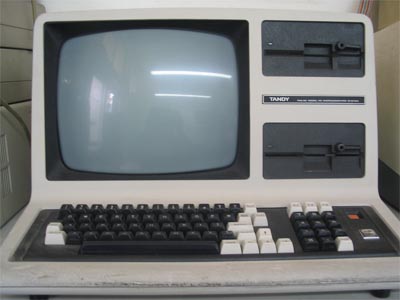Staying green: Disposing of old computers
 Washington - It's easy to buy computers. It's not so easy to dispose of them responsibly - at least not until you know how.
Washington - It's easy to buy computers. It's not so easy to dispose of them responsibly - at least not until you know how.
Computers and computer components contain plenty of substances that are harmful to the environment, including lead, mercury, and cadmium. That's why in many parts of the world, it's illegal simply to throw computers, monitors, printers, and other electronic components in the normal trash bin. Even if you're not ready to part with your current computer, it pays to know well in advance which options you have to get rid of it safely. Here are some tips.
--- Look local
Your first stop in deciding how to dispose of old computer should be your local municipality or recycling centre. If you're not sure of the closest recycling centre, Google can be your best friend. Simply by typing "computer recycling" along with the city in which you're located will likely turn up several locations.
There are Web sites, too, that can help you locate a nearby recycling centre. MyGreenElectronics (http://www.mygreenelectronics.com), international in scope, lets you type in your city and country to find the closest recycling location.
--- PC makers can help
Computer makers now know that it's good business to offer some type of recycling service, and most of the major manufacturers do. After all, helping you get rid of an old computer can open the door to selling you a new one.
So if you need to dump old equipment, you may need to look no further than the label on your existing PC. Dell, for example, offers several recycling programs, depending upon your location. Typical of these is an offer to allow you to ship your computer back to Dell and have the parts recycled at no cost to you - other than shipping.
Another program that Dell sometimes offers is a recycling "event," held in selected cities, in which, for a day, you're allowed to take your computers or electronics - whether they're made by Dell or not - and turn them in to be recycled. Again, turn to Google or another search engine to find Dell's recycling policies in your area.
Toshiba aims to make recycling not only easy but potentially lucrative. The company's recycling program in some parts of the world gives you a credit toward the purchase of a new computer, regardless of whether your old equipment comes from Toshiba. You can use the company's EZ Tradein calculator to estimate how much the company will give you for your old machine.
Apple also takes recycling seriously, typically allowing customers to turn in old equipment for free and sometimes offering credit toward the purchase of a new unit. Program details vary according to country, but Apple makes it easy to find out how to recycle computer equipment in your location at the Apple and the Environment Web site (http://www.apple.com/environment/recycling/nationalservices/europe.h tml).
--- Think "donation"
Recycling computers, of course, actually involves destroying the machines. And that's a shame if the computers are still serviceable, especially when so many in the world still do not have access to computers or the Internet.
So donating your computer can be a better idea - and easier as well. A good rule of thumb is that if your computer is more than seven years old, it should probably be recycled. If it's less than seven years old, it's probably useful to someone, and you should consider donating it.
As with recycling, donations are easiest when they're local, and you'll likely find plenty of charities that will gladly accept your old computer simply by conducting a search on Google.
You might think the people in your local area are already spoiled with the latest computer tech, however, and would feel better about sending your PC to a place that's less advantaged. If so, you'll find plenty of resources for nonprofit agencies and world-wide computer exchanges at the Global Crisis Solution Centre's Computer Recycling site (http://globalcrisis.info/computerrecycle.html). There, you'll find links to the World Computer Exchange, Computers with Causes, InterConnection, and more. It's a one-stop directory of the major organisations devoted to computer-related giving.
There are a few things to remember when giving away an old computer. First, if at all possible, include the original disks for the software that came installed on the computer when you purchased it. Having the original disks will allow the recipient to install the software from scratch.
Second, and just as important, be sure you have removed all personal data from the computer before it leaves your possession. It's not enough just to delete files - or even to reformat a hard drive. You need to use a disk wiping tool such as Eraser
(http://www.heidi.ie/node/6) to ensure that no one can undelete or even unformat your old hard drive.
--- Job well done
Computers consist of a lot of valuable resources - metal, plastic, and copper, to name just a few - and they take a considerable amount of energy to produce. So whether you recycle or donate, you'll not only be ridding yourself of an unused piece of equipment, but you'll be doing the environment a big favour as well. (dpa)